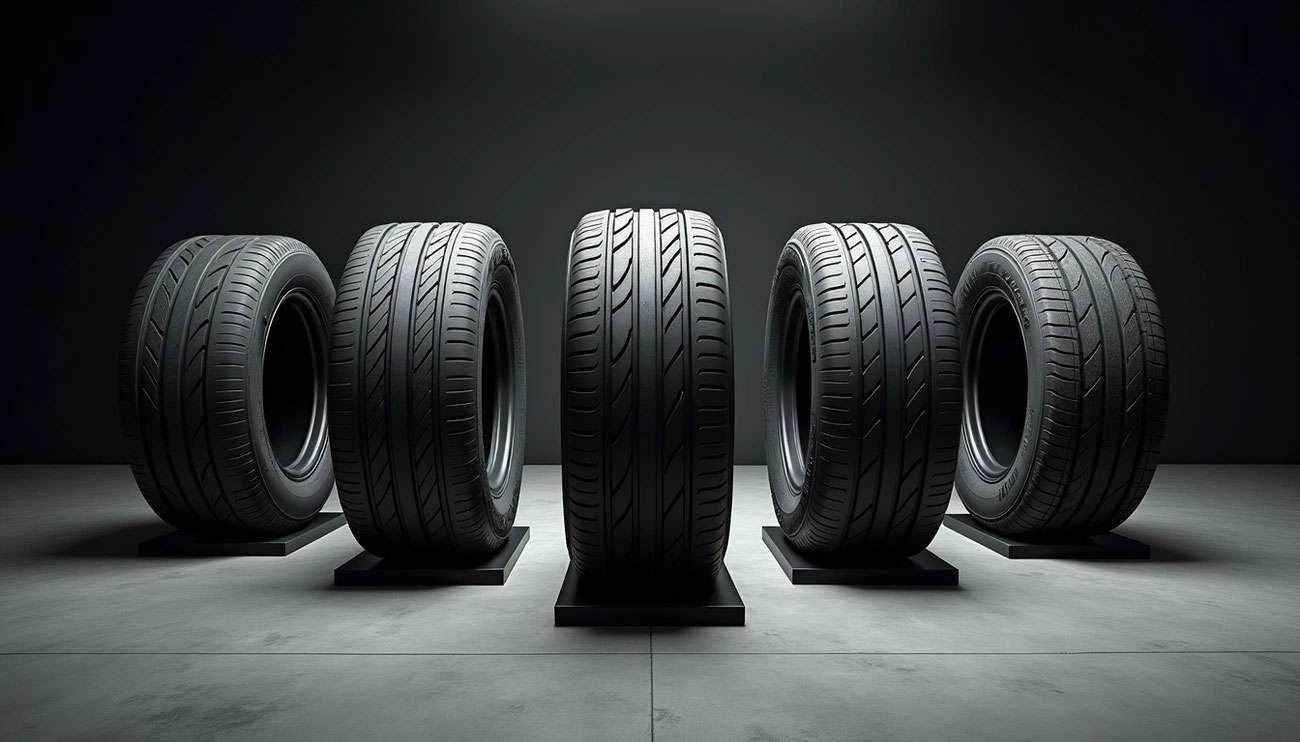
What is the most recommended tire brand? This question matters more than most drivers realize since your tires are literally where the rubber meets the road for safety, performance, and comfort.
The search for the best car tire brands consistently leads to five industry giants that have dominated tire brand rankings in real-world tests. Michelin, instantly recognized by its white, marshmallow-looking mascot, has been producing quality tires for over 100 years. Meanwhile, Goodyear currently holds the title as the largest tire manufacturer in the world. When looking at performance, the Pirelli Cinturato WeatherActive was a top finisher in recent tests, delivering the best dry performance and solid results in snow.
Here's the reality: no single brand excels in every category. The most reliable tire brands shine in different areas - some perform exceptionally in wet conditions, while others offer superior durability or fuel efficiency. The Michelin CrossClimate 2 continues to top best tire lists for its versatility and endurance, while Goodyear's Assurance Fuel Max has proven to provide energy savings of up to 2,600 miles worth of gas throughout the life of four tires.
We'll examine real test results across braking, handling, hydroplaning resistance, and other critical performance areas to determine which tire brand truly deserves the title of "most recommended." At Performance Plus Tire, we believe in providing you with factual, evidence-based information so you can make the best choice for your vehicle and driving needs.
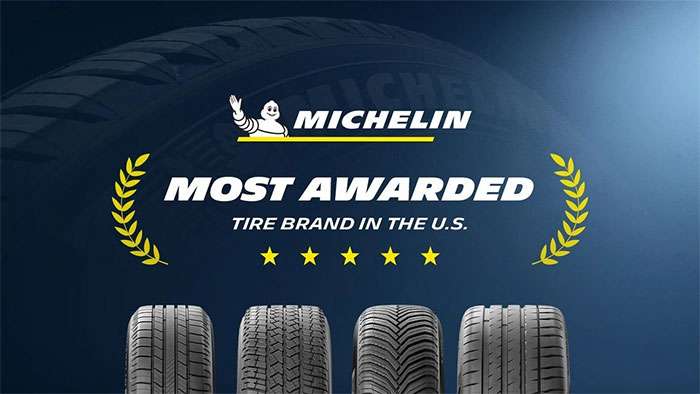
Founded in 1889 by brothers Édouard and André Michelin in Clermont-Ferrand, France, Michelin has built itself into a global mobility leader with an unmatched reputation for quality and innovation. As the top-selling tire brand worldwide, Michelin represents the benchmark against which other manufacturers measure themselves in the tire industry.
Michelin's 130+ years of experience have established the company as more than just a tire manufacturer – it's a mobility solutions provider dedicated to enhancing customer mobility sustainably. The company's commitment to innovation has made it the number one source of innovation in the global tire industry, earning recognition among the world's 100 most innovative companies according to Clarivate Top 100 Global Innovators 2023.
The brand's global reach is impressive. With 69 production facilities across 18 countries, Michelin manufactures tires to meet specific regional needs and road conditions. In 2012 alone, the company produced 166 million tires across these facilities. With approximately 114,000 employees worldwide, Michelin has built a reputation for uncompromising quality that extends beyond its products to its corporate values.
Brand power is another area where Michelin dominates. The company boasts the best Brand Power Score among tire brands in several markets including China, Spain, France, and Thailand. The iconic Michelin Man (Bibendum) has been named the "icon of the millennium" by New York's Advertising Week and "best logo in the world" by the Financial Times, further solidifying the brand's recognition worldwide.
Michelin has been ranked as the top tire manufacturer on Fortune's "World's Most Admired Companies" list and appears on the Fortune Global 500. This remarkable brand value is expected to reach 8.8 billion dollars by 2025.
Michelin's extensive tire lineup delivers solutions for virtually every vehicle type and driving condition. Among their most acclaimed products:
CrossClimate2 and CrossClimate2 SUV: All-season tires offering exceptional wet braking performance even when worn. The CrossClimate2 emits only 1.5 kg of particles during 20,000 km of use – less than half the market average (3.5 kg).
Primacy 4+: Engineered for superior wet braking at worn state, stopping from 80-20 kph in just 31.5 meters – outperforming competitors like Bridgestone Turanza T005 (36.4m), Continental Premium Contact 6 (35.3m), and Goodyear EfficientGrip Performance 2 (35.5m).
Pilot Sport 4S: Ultra-high-performance tire delivering exceptional dry and wet braking. In tests, the Pilot Sport 4S needed only 33.66 meters to stop from 100 km/h to 0 km/h, outperforming its largest competitor by nearly one meter. On a 2.6 km circuit, it proved almost one second faster on average than competitors.
Defender T+H: Known for durability and comfort in passenger vehicles.
Pilot Sport EV: Specifically designed for electric vehicles, helping extend range through reduced rolling resistance.
Michelin also offers specialized lines including the X-Ice Snow for winter conditions, LTX M/S2 for SUVs and trucks, and various other models catering to specific vehicle types and driving needs.
What truly sets Michelin tires apart is their consistent performance throughout the tire's lifespan. Unlike many competitors who optimize their tires for performance when new (for testing and reviews), Michelin designs tires that maintain high performance levels until the very last mile. This "Performance Made to Last" philosophy is evident in their extensive testing protocols.
Michelin has accumulated over 100 J.D. Power awards since studies began in 1989 – four times more than all competitors combined. They've earned a 4.4 out of 5 stars customer satisfaction rating based on 38,139 reviews, with 90% of consumers recommending Michelin tires.
At the core of Michelin's performance advantage is their technological innovation. The company invests more than €1 billion annually in research, developing proprietary technologies like:
Bi-Compound technology: Uses two different rubber types on the tread – one to repel water on wet surfaces and another for exceptional dry adhesion.
Dynamic Response technology: Ensures faster, more precise transmission of steering wheel movements to the tire.
EverGrip Technology: A patented safety innovation that evolves as the tire wears, maintaining performance on snowy and wet roads.
Zero Pressure Technology: Features reinforced sidewalls that continue supporting vehicle weight even after air pressure loss.
Performance data validates these technologies. Independent tests by Germany's ADAC compared worn all-season tires from multiple brands. The Michelin CrossClimate 2 (worn 1.6mm) stopped in 31.7 meters on wet surfaces when braking from 50-5 km/h, decisively beating Continental AllSeasonContact (35.9m) and Goodyear Vector 4Seasons (36.2m).
Michelin's commitment to sustainability extends beyond manufacturing to product performance. Their tires help reduce fuel consumption through optimized rolling resistance, and the company has set ambitious environmental targets including achieving net-zero carbon emissions by 2050.
The brand's testing infrastructure is equally impressive. Michelin operates multiple test centers worldwide, including their Technology Center in Ladoux, France – one of Europe's largest research centers. These facilities allow the company to test tire performance across thousands of variables, simulating real-world conditions that drivers encounter daily.
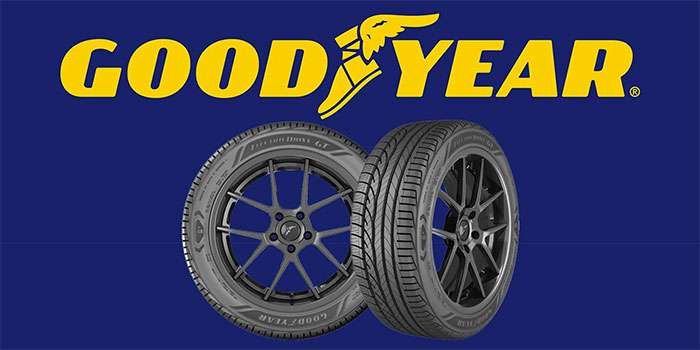
Since Frank Seiberling founded The Goodyear Tire & Rubber Company in 1898 in Akron, Ohio, the brand has grown into one of the world's largest tire manufacturers. Named after Charles Goodyear (inventor of vulcanized rubber), the company has built a legacy spanning over 125 years. Its famous "wingfoot" logo – inspired by the Roman god Mercury – has become one of the most recognized symbols in the automotive industry.
Goodyear's global presence is substantial. Operating 56 manufacturing plants across 22 countries, the company employs approximately 72,000 people worldwide. While some sources report it as the world's largest tire manufacturer, others place it as the third-largest. Regardless of exact ranking, Goodyear's influence on the tire industry is undeniable.
The company's reach extends beyond passenger vehicles. Goodyear produces tires for virtually every application – from motorcycles to massive mining equipment. Their aviation division has supplied tires for notable missions including the Space Shuttle and the iconic DC-3 Dakota. The brand's commitment to motorsports has driven significant technological advancement, with their racing tire expertise informing consumer product development.
Today, Goodyear operates in over 34 countries and manufactures over 200 different tire models. The company's portfolio includes multiple sub-brands including Dunlop (acquired in 1999), Kelly Tires, and Fulda, each targeting specific market segments and customer needs.
Goodyear's tire lineup addresses diverse driving needs and conditions. Here are their standout performers:
Assurance WeatherReady 2: Goodyear's flagship all-weather tire excels in both summer and winter conditions. In independent tests, the WeatherReady 2 outperformed premium competitors in wet handling. The tire features Goodyear's Weather Reactive Technology and AquaChannel grooves for superior water evacuation.
Eagle F1 Asymmetric 6: Recognized in the AutoBild summer tire test 2024, this ultra-high-performance tire delivers exceptional dry braking and handling. The latest generation features ActiveBraking Technology that increases ground contact during hard braking.
UltraGrip Performance 3: A winter tire powerhouse that ranked first in the ADAC winter tire test with a perfect score. The tire performs exceptionally on ice, stopping in just 10.8 meters compared to Continental WinterContact TS 870 P (12.1m) and Michelin Pilot Alpin 5 (12.5m).
Assurance Fuel Max: Designed for fuel efficiency without compromising performance, these tires can save up to 2,600 miles worth of fuel over the tire's lifetime.
Wrangler All-Terrain Adventure: A rugged tire for trucks and SUVs that balances off-road capability with on-road comfort.
Goodyear's technological innovations directly address real-world driving challenges. Their ComfortFlex Technology, found in tires like the Assurance MaxLife, uses computer-optimized elements to reduce road vibrations by up to 20% compared to previous models. This engineering focus on ride comfort sets Goodyear apart in the mid-premium segment.
The company has developed several proprietary technologies:
ComfortFlex Technology: Optimizes shock absorption to minimize road vibrations.
AquaChannel Grooves: Wide circumferential channels that evacuate water efficiently, reducing hydroplaning risk.
Durawall Technology: Reinforced sidewalls that resist cuts and impacts in truck tires.
SightLine technology: Tire wear indicators that change appearance as tread depth decreases.
Goodyear's commitment to innovation extends to the future of mobility. The company has invested heavily in developing tires specifically engineered for electric vehicles, which have unique requirements due to instant torque delivery and increased weight. Their ElectricDrive Technology optimizes tires for EV performance while maintaining the quiet operation electric vehicle owners expect.
The company's testing protocols are rigorous. Goodyear maintains proving grounds worldwide where engineers subject tires to extreme conditions. Their San Angelo, Texas facility alone spans 5,000 acres and features 45 miles of testing surfaces simulating various road conditions.
Perhaps most impressive is Goodyear's history with the Akron Fulton Airport – the world's only tire test track at a public airport. This unique facility has been testing tires since the 1920s, cementing Goodyear's legacy as an innovation leader.
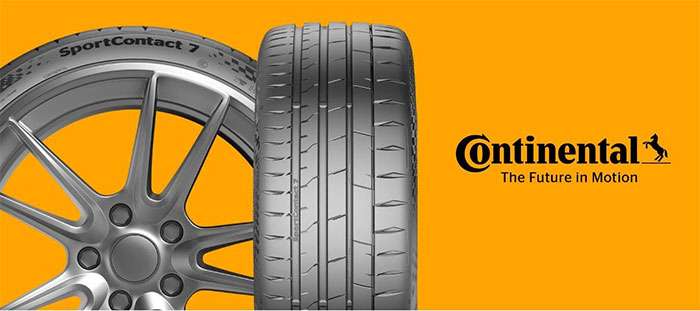
Founded in Hanover, Germany in 1871, Continental AG has evolved from a rubber manufacturer into a technology powerhouse. While initially focused on rubber products and "soft tires" for bicycles and carriages, Continental produced its first automobile tire in 1898. Today, the company ranks as the world's fourth-largest tire manufacturer and a leader in automotive technology solutions.
Continental's global footprint is extensive. The company operates in 56 countries with major manufacturing plants in Germany, the United States, Romania, the Czech Republic, and China. With approximately 200,000 employees worldwide, Continental has established itself as more than just a tire manufacturer – it's a comprehensive automotive technology provider with divisions spanning brake systems, vehicle electronics, and autonomous driving technologies.
The company's tire division represents one of the largest in the world, producing tires for passenger cars, commercial vehicles, motorcycles, and bicycles. Continental's diverse portfolio serves virtually every vehicle segment, from economy cars to high-performance sports cars and heavy-duty commercial trucks.
Continental has consistently demonstrated financial strength. With annual sales exceeding €41 billion, the company invests heavily in research and development. This commitment is evident in their approximately 2,000 R&D personnel dedicated specifically to tire development.
Continental's tire lineup showcases advanced engineering across multiple categories:
SportContact 7: Continental's latest ultra-high-performance tire has dominated testing since its launch in 2022. The SportContact 7 won an impressive 21 out of 24 tests, including recognition from Auto Bild, AutoZeitung, and Auto Motor und Sport. It excels in both dry and wet conditions, setting the benchmark in its category.
AllSeasonContact: A versatile all-season tire that performs well across temperature extremes. Testing by German publication Auto Zeitung awarded it top marks for balanced performance year-round.
PureContact LS: Designed for comfort-oriented drivers, this tire balances low rolling resistance (for fuel efficiency) with excellent wet traction. Consumer Reports consistently rates it among the top touring all-season tires.
ExtremeContact Sport 02: An ultra-high-performance summer tire that delivers track-worthy grip while remaining streetable for daily driving.
VikingContact 7: Continental's winter tire solution, engineered for severe snow and ice conditions without sacrificing handling on dry roads.
Continental's engineering excellence is backed by one of the industry's most comprehensive testing programs. The company operates the world's largest, fully automated tire testing facility in Contidrom, Germany – a 1,300-acre proving ground where Continental conducts 25 million test kilometers annually. This massive testing volume ensures every tire meets rigorous performance standards before reaching consumers.
Continental has developed several breakthrough technologies that enhance tire safety and performance:
ContiSeal Technology: An innovative puncture-sealing layer inside the tire that automatically seals punctures up to 5mm. This technology eliminates approximately 80% of puncture-related flat tires, meaning drivers often don't even realize they've run over a nail.
ContiSilent Technology: A polyurethane foam layer attached to the tire's inner liner that absorbs road noise before it enters the vehicle cabin. This reduces interior noise by up to 9 decibels – creating a noticeably quieter ride.
Runflat Technology: Reinforced sidewalls allow the tire to support the vehicle's weight even after complete air pressure loss. Drivers can continue traveling up to 50 miles at speeds up to 50 mph, eliminating roadside tire changes.
HL (High Load) Load Index: Specially designed for electric vehicles, which typically weigh 20-30% more than comparable gasoline vehicles. These tires safely support higher loads while maintaining performance.
Continental's commitment to safety earned them recognition as "Best Tire Brand 2024" according to testing by Auto Bild, Auto Motor und Sport, and GTÜ. The SportContact 7 specifically demonstrated exceptional performance, achieving top rankings in multiple categories including dry braking, wet braking, and handling.
The company's innovation extends to sustainability. Continental has committed to using renewable and recycled materials, with the goal of making all tires from 100% sustainable materials by 2050. Their Conti GreenConcept tire showcased this vision, incorporating materials like dandelion rubber and recycled polyester.
What sets Continental apart is their holistic approach to tire development. Rather than optimizing for a single characteristic, Continental engineers balance multiple factors – safety, comfort, longevity, and environmental impact. This philosophy results in tires that perform consistently across various conditions rather than excelling narrowly in one area.
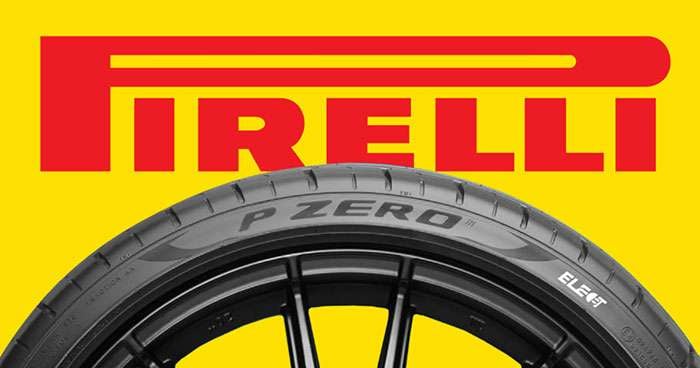
Founded in Milan, Italy in 1872 by Giovanni Battista Pirelli, Pirelli has cultivated a distinctive identity in the tire industry. Rather than competing across all market segments, Pirelli focuses exclusively on high-performance, premium, and prestige tires – a strategic positioning that has made the company synonymous with performance and luxury vehicles.
Pirelli operates 18 factories across 12 countries, with a strong presence in Europe, North America, South America, and Asia-Pacific regions. The company employs approximately 31,000 people globally and generates annual revenue exceeding €6 billion. Despite being smaller than some competitors in total production volume, Pirelli commands significant influence in the premium tire segment.
What distinguishes Pirelli is its "Perfect Fit" strategy – developing tires specifically tailored to individual vehicle models in collaboration with automakers during the vehicle design phase. This approach has made Pirelli the tire supplier for approximately 50% of high-end vehicles coming off production lines, including brands like Ferrari, Lamborghini, Porsche, and McLaren.
Pirelli's commitment to motorsports is legendary. The company serves as the official tire supplier for Formula 1 – a position it has held since 2011. This racing pedigree directly informs consumer tire development, with technologies proven in the extreme conditions of motorsports eventually reaching road tires. Pirelli also supplies tires for numerous other racing series including World Superbike, World Rally Championship, and GT racing.
Pirelli's product portfolio emphasizes performance without compromise:
P Zero (5th generation): Pirelli's flagship ultra-high-performance tire, now in its fifth generation. Auto Express testing ranked the P Zero as the #1 tire in its category for 2024. The latest version features improved wet braking performance while maintaining exceptional dry grip. The tire is available in numerous size options and specific versions tailored to different vehicle types.
P Zero Corsa: An extreme-performance tire designed for track days and spirited driving. This tire prioritizes maximum grip over tread life, making it ideal for performance enthusiasts who demand racing-level traction.
Cinturato P7: Pirelli's performance-oriented all-season tire that balances efficiency with handling. The Cinturato line is designed for drivers who want responsive handling without sacrificing comfort or fuel economy.
Cinturato WeatherActive: Pirelli's all-weather tire designed for year-round performance. Recent testing showed this tire delivering the best dry performance in its class while maintaining solid snow capability.
Winter Sottozero 3: A premium winter tire that doesn't compromise handling for snow traction. It's popular among luxury vehicle owners who experience harsh winters but still want engaging driving dynamics.
Pirelli's technological innovation focuses on maximizing performance and connectivity. The company invests approximately 5% of its High Value product revenue in R&D – a substantial commitment that has yielded over 5,900 patents across various technologies.
Key Pirelli innovations include:
Elect Technology: Specifically engineered for electric vehicles. These tires feature reduced rolling resistance to extend EV range, noise-canceling technology to maintain the quiet cabin EVs are known for, and enhanced sidewall strength to support the additional weight of battery packs. Elect tires can increase range by up to 50 kilometers per charge.
Cyber Tire (PNCS – Pirelli Noise Cancelling System): A sound-absorbing foam inside the tire that reduces interior noise by approximately 25% compared to standard tires. This technology is particularly popular with luxury and EV manufacturers where cabin quietness is paramount.
Run Flat Technology: Reinforced sidewalls that allow the vehicle to continue driving up to 50 miles at reduced speed after a puncture. Pirelli has been a pioneer in run-flat tire development, particularly for BMW vehicles.
Connesso (Connected Tire): An intelligent tire system that transmits real-time data about tire pressure, temperature, and wear to the driver via smartphone app. This system can also suggest when to replace tires based on wear patterns and driving conditions.
Pirelli has also pioneered the use of AI in tire development. Their Cyber Car system uses machine learning to analyze vast amounts of data from test vehicles, accelerating the development process and enabling more precise tuning of tire characteristics for specific vehicle models.
The company's commitment to sustainability is notable. Pirelli has set a target to achieve carbon neutrality by 2030 and has been increasing the use of renewable and recycled materials in tire production. Their products are designed for longevity, which reduces waste over time.
What makes Pirelli unique in the premium segment is their willingness to optimize tires for specific purposes rather than trying to be the best at everything. A Pirelli P Zero Corsa prioritizes ultimate dry grip for track use, while a Cinturato P7 Blue emphasizes low rolling resistance for efficiency. This focused approach allows enthusiasts to select exactly the performance characteristics they value most.
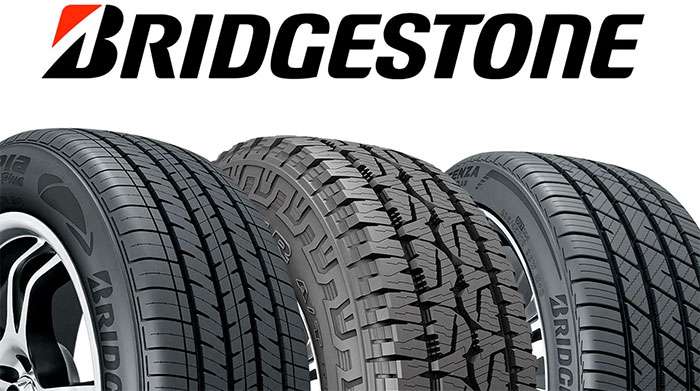
Founded in 1931 by Shojiro Ishibashi in Kurume, Japan, Bridgestone has grown to become the world's largest tire manufacturer by revenue. The company name itself is a direct translation of "Ishibashi" (ishi = stone, bashi = bridge), reflecting its Japanese origins while creating a globally recognizable brand identity.
Bridgestone's scale is extraordinary. The company operates 181 production facilities across 24 countries and employs approximately 130,000 people worldwide. With annual revenue exceeding $30 billion, Bridgestone produces tires for virtually every vehicle type – from bicycles to massive construction equipment.
The company's strategic acquisitions have expanded its global footprint significantly. The purchase of Firestone in 1988 gave Bridgestone strong footing in the North American market, while the acquisition of former Goodyear plants further strengthened their manufacturing capacity. Today, Bridgestone owns multiple sub-brands including Firestone, Dayton, and Fuzion, each serving different market segments.
Bridgestone is not just a tire company – it's a comprehensive mobility solutions provider. The company invests heavily in sustainable mobility technology, including tire materials derived from guayule (a desert shrub) and dandelion rubber. These alternative materials reduce dependence on traditional rubber tree plantations while maintaining performance.
Bridgestone's product lineup demonstrates precision engineering across categories:
Blizzak WS90: Widely recognized as one of the best winter tires available. The Blizzak WS90 won the Auto Bild winter tire test in the studless winter tire category. It features Multi-Cell Compound technology that maintains flexibility in extreme cold while providing exceptional ice and snow traction. In independent tests, the WS90 stopped shorter on ice than any competitor tested.
Turanza All Season 6: A premium touring all-season tire designed for drivers who prioritize comfort and long tread life. The Turanza line offers excellent wet traction along with a comfortable, quiet ride.
Potenza Sport: Bridgestone's latest ultra-high-performance summer tire led testing in six different performance categories. It provides track-level grip while remaining civil enough for daily driving. The Potenza Sport features Bridgestone's latest NanoPro-Tech compound for exceptional wet and dry traction.
DriveGuard: A run-flat tire that can continue operating for 50 miles at 50 mph after a puncture. Unlike some run-flats that sacrifice ride comfort, the DriveGuard maintains a surprisingly compliant ride quality.
Alenza AS Ultra: Designed specifically for SUVs and crossovers, this tire combines all-season capability with enhanced load-carrying capacity. It's particularly popular among luxury SUV owners.
Bridgestone's engineering prowess stems from their massive investment in research and testing infrastructure. The company operates 10 proving grounds across 8 countries, including their massive Texas Proving Grounds spanning 5,000 acres. At these facilities, Bridgestone tests approximately 130,000 tires annually under real-world conditions.
Bridgestone has developed several proprietary technologies:
NanoPro-Tech: A compound technology that works at the molecular level to optimize the interaction between various rubber compounds and silica. This technology enables Bridgestone to fine-tune grip, wear resistance, and rolling resistance simultaneously – characteristics that typically trade off against each other.
Multi-Cell Compound (in Blizzak tires): Microscopic pores in the tread compound act like tiny "biting edges" that grip ice. As the tire wears, new cells are continuously exposed, maintaining winter performance throughout the tire's life.
MSB (More Shoes and Boots) Technology: Optimizes the contact patch shape to improve braking performance. By engineering the tire's construction to maintain optimal shape under braking forces, MSB technology delivers shorter stopping distances.
Pulse Groove Technology: Varies the width and angle of tread grooves to reduce road noise harmonics. This creates a quieter tire without sacrificing water evacuation capability.
Bridgestone's commitment to innovation extends to smart tire technology. Their CAIS (Contact Area Information Sensing) system uses sensors to monitor tire-road contact in real-time, feeding data that can optimize vehicle dynamics systems or alert drivers to changing road conditions.
The company's sustainability initiatives are comprehensive. Bridgestone has committed to using 100% sustainable materials in tires by 2050 and achieving carbon neutrality by 2050. They've developed demonstration tires containing up to 60% renewable and recycled materials while maintaining full performance capabilities.
Quality control at Bridgestone is meticulous. Every tire undergoes rigorous testing before leaving the factory. The company's commitment to consistency means a Bridgestone tire performs identically whether it was manufactured in Japan, the United States, or Europe – a significant achievement given the complexity of tire production.
What sets Bridgestone apart is their philosophy of "serving society with superior quality." This isn't just marketing – it's embedded in their manufacturing processes and product development. Bridgestone engineers don't just design tires to pass tests; they design tires that deliver consistent, reliable performance throughout their entire life cycle.
When comparing top tire manufacturers, examining their distinctive strengths reveals how each brand has carved out unique positions in the market. Here's a detailed comparison of Michelin, Goodyear, Continental, Pirelli, and Bridgestone across critical factors.
Brand |
Global Manufacturing Footprint |
Key Technologies |
Top-Performing Models |
Notable Performance Highlights |
R&D/Innovation Focus |
|---|---|---|---|---|---|
Michelin |
69 facilities across 18 countries |
- Bi-Compound technology |
- CrossClimate2 |
- Best wet braking performance |
€1 billion annual R&D investment; ranked among world's 100 most innovative companies |
Goodyear |
Present in 34+ countries |
- ComfortFlex |
- Assurance WeatherReady 2 |
- UltraGrip Performance 3 ranked 1st in ADAC winter tire test |
Focus on EV-specific technologies and sustainable materials |
Continental |
56 countries with major plants |
- ContiSeal |
- SportContact 7 |
- SportContact 7 won 21 out of 24 tests since 2022 |
Approximately 2,000 R&D personnel; extensive automated testing facilities |
Pirelli |
18 factories in 12 countries |
- Elect technology |
- P Zero (5th gen) |
- P Zero ranked #1 in Auto Express tests |
5% of High Value product revenue invested in R&D; 5,900+ patents |
Bridgestone |
181 facilities in 24 countries |
- NanoPro-Tech |
- Blizzak WS90 |
- Blizzak WS90 won Auto Bild winter tire category |
Tests 130,000 tires annually; 10 proving grounds across 8 countries |
The data reveals some interesting patterns. Bridgestone leads in global manufacturing scale with 181 facilities, while Pirelli focuses on premium market positioning with fewer but more specialized locations. Continental and Michelin invest heavily in innovation, with Continental conducting 25 million test kilometers annually and Michelin spending over €1 billion on research and development.
Each brand brings distinct advantages to the table. Your choice should align with your specific driving needs and conditions rather than brand recognition alone.
Real-world test results across these five industry giants reveal a clear truth – no single tire brand dominates every category. Each manufacturer has carved out distinct strengths that serve different driver needs. Michelin delivers consistent performance throughout tire lifespan with superior wet braking capabilities. Goodyear shows remarkable versatility with standouts like the award-winning UltraGrip Performance 3. Continental impresses with rigorous testing protocols and safety innovations like ContiSeal technology. Pirelli commands the high-performance segment through motorsport heritage. Bridgestone combines Japanese precision with extensive global testing infrastructure.
Your optimal choice depends on specific driving conditions, vehicle type, and performance priorities. Weather patterns in your region, typical driving habits, and budget all factor into this decision. Many drivers find different brands work better on different vehicles based on weight distribution, handling characteristics, and intended use.
Finding the perfect tire match requires weighing objective test data against personal driving priorities. For expert guidance and the best selection of premium tires from top brands like Michelin, Goodyear, Continental, Pirelli, and Bridgestone, visit Performance Plus Tire. The investment in quality tires from these proven manufacturers delivers enhanced safety, comfort, and performance – three aspects no driver should compromise. While prices vary between these top-tier brands, the technological advantages they offer compared to budget alternatives make them worth considering for drivers who value safety and driving experience.
After analyzing real-world test results from five industry-leading tire manufacturers, here are the essential insights for choosing the right tire brand:
• No single brand dominates all categories - Michelin excels in wet braking, Goodyear leads winter performance, Continental wins in safety tech, Pirelli dominates high-performance, and Bridgestone offers precision engineering.
• Performance varies by specific tire model, not just brand - The Michelin Pilot Sport 4S stops in 33.66m from 100km/h, while Goodyear's UltraGrip Performance 3 ranked #1 in ADAC winter tests.
• Match tire choice to your driving conditions - Consider your regional weather patterns, typical driving style, vehicle type, and performance priorities rather than relying solely on brand reputation.
• Premium brands invest heavily in R&D for lasting performance - Michelin spends €1 billion annually on research, Continental tests 25 million kilometers yearly, and Bridgestone evaluates 130,000 tires annually.
• Technology matters more than marketing - Look for specific innovations like Michelin's EverGrip Technology, Continental's ContiSeal puncture protection, or Pirelli's Cyber Tire intelligence system.
The key is understanding that tire selection should be based on your specific needs and driving conditions rather than brand loyalty alone. Each manufacturer offers distinct advantages that may align perfectly with your requirements.
While there's no single "most reliable" brand, Michelin consistently ranks highly for overall quality and performance across various tire categories. Their tires are known for maintaining performance throughout their lifespan.
Consider your specific driving conditions, vehicle type, typical weather, and performance priorities. Also factor in your budget, as premium brands often offer advanced technologies that can enhance safety and performance.
Generally, yes. Premium brands like Michelin, Goodyear, and Continental invest heavily in research and development, resulting in tires with superior performance, safety features, and longevity that often justify the higher initial cost.
Brands like Bridgestone (with their Blizzak line) and Goodyear (with the UltraGrip series) consistently receive top ratings for winter performance. However, the best choice can vary depending on your specific winter driving needs.
All major brands invest in innovation, but they focus on different areas. For example, Continental is known for safety technologies like ContiSeal, Pirelli excels in high-performance and "smart" tires, while Michelin emphasizes overall performance longevity.